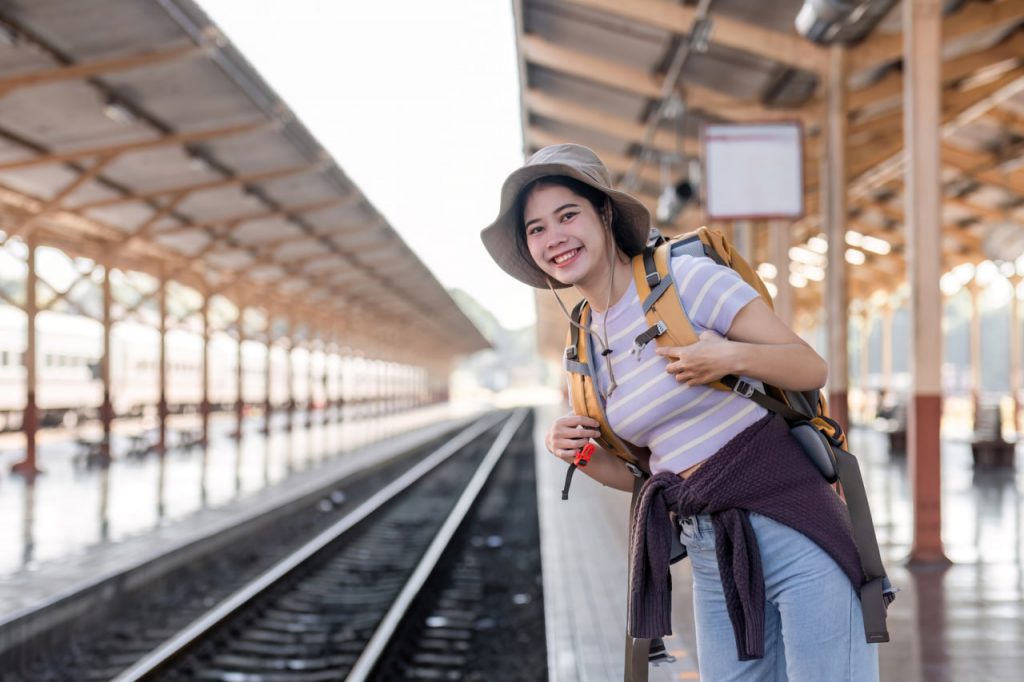Embrace the Excitement and Acknowledge Your Fears
Planning your first solo trip can feel like standing on the edge of something huge and unknown. The thrill of adventure mixes with nerves and uncertainty. It’s perfectly normal to feel a little overwhelmed or scared. The important thing is to acknowledge these feelings and remind yourself that they are part of the journey — they mean you’re about to grow.
Tip: Write down your fears and then challenge them one by one. This helps reduce anxiety and makes the unknown feel more manageable.
Choose a Destination That Feels Right for You
Not every destination suits a first-time solo traveler. Some places are more welcoming, safer, and easier to navigate. Choose a location where you can focus on the experience without worrying too much about safety or logistics.
Tip: Start with countries known for their friendly atmosphere and good tourist infrastructure, like Portugal, Japan, or Thailand. Look for places where English is widely spoken or easy to get by with.
Set a Realistic Budget and Plan Your Finances
Knowing how much your trip will cost is crucial. Planning a budget helps prevent stress later and ensures you have enough to enjoy your journey without financial worries.
Tip: Consider budget-friendly options like hostels or guesthouses with common areas to meet other travelers. Research local food markets or affordable eateries — these are often both delicious and kind to your wallet.
Book Only Your First Few Nights
While it’s tempting to lock in your entire trip, solo travel benefits from flexibility. Booking just the first few nights gives you a safety net while leaving room for spontaneous plans.
Tip: Use apps or websites that allow easy, free cancellations or date changes. This way, you won’t feel stuck if you want to change course.
Research Local Culture and Customs
Understanding the culture of your destination helps you feel more comfortable and shows respect to locals. Small gestures like learning basic greetings or dressing appropriately can go a long way.
Tip: Watch travel vlogs or read blogs from solo travelers who’ve visited your destination. Their firsthand tips about local etiquette can be invaluable.
Pack Light and Smart
Traveling solo means you’ll carry your luggage alone, so packing efficiently is key. Bring versatile clothing you can layer, and don’t forget essentials like a comfortable pair of shoes.
Tip: Make a packing list and stick to it. Avoid overpacking gadgets or valuables that could slow you down or cause worry.
Prioritize Safety Without Letting Fear Control You
Solo travel safety is about being smart and aware, not paranoid. Trust your instincts and take reasonable precautions to stay secure.
Tip: Always share your travel plans with a close friend or family member and check in regularly. Keep digital and physical copies of important documents.
Allow Yourself to Experience Solitude
Spending time alone can feel strange at first, but it’s also a chance to connect with yourself deeply. Solo travel offers a unique opportunity to slow down and reflect.
Tip: Carry a journal or use a notes app to document your thoughts and experiences. Writing can help process emotions and capture memories.
Be Open to New Connections
Although you’re traveling alone, you don’t have to be lonely. Solo travel often opens doors to meaningful interactions with locals and fellow travelers.
Tip: Join group tours, attend local events, or visit social spaces like cafés or hostels. Say hello — sometimes a simple conversation can turn into a lasting friendship.
Remember: It’s Okay Not to Have Everything Perfect
Your first solo trip won’t be flawless, and that’s part of the adventure. You’ll learn, adapt, and grow through the unexpected.
Tip: Practice self-compassion. Celebrate small wins and give yourself grace when things don’t go as planned.

